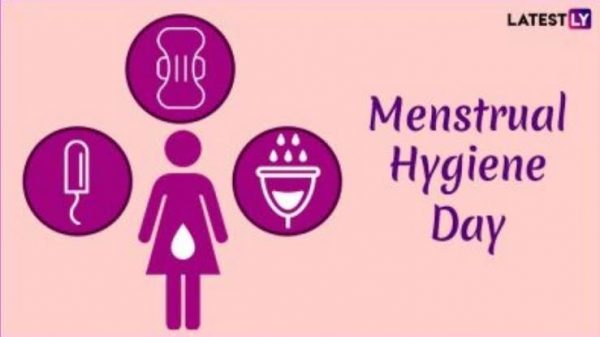
Mrs Pauline Tallen, Minister of Women Affairs and Tabitha Cumi Foundation (TCF), an NGO have called for inclusion of women and girls with disability in menstrual health and hygiene management policies.
They made the call at a training on Wednesday organised by TCF in commemoration of the 2022 Menstrual Health and Hygiene Management Day celebration held at Abuja School of the Deaf, Kuje, FCT.
Tallen, represented by Ms Gloria Ekanem of gender unit in the ministry said girls and women with disabilities faced lot of challenges in accessing menstrual health and hygiene management.
The minister said such vulnerable group should be considered in infrastructure designs, policies and provision of Water, Sanitation and Hygiene (WASH) facilities.
“Maintaining menstrual health hygiene and practices for all these women and their families is challenging, therefore an unending uphill struggle to which people require a lot of mental and physical support.
“When it comes to communication and interacting with these children to convey information concerning menstruation, the interpreter needs to be accurate.
“As it could be dangerous too if they interpret the information incorrectly and follow wrong practices,” she said.
According to her, women and girls with disabilities face challenges of accessing structures, reading instructions or directions, using toilet facilities, amongst others.
She therefore encouraged other organisations to also support government in providing materials and creating awareness on menstrual health and hygiene to girls and women.
Mrs Tayo Erinle, Executive Director, TCF said the distribution of hygiene kits and sanitary pad to mark the day was part of its “Always Keeping Girls in School (AKGIS) project”.
Erinle said the one-year project implemented by the organisation was sponsored by Procter and Gamble (P&G) to empower 1,500 girls in 20 FCT schools and 10 schools in Abeokuta.
She explained that the project targets educating girls on reproductive health through skills and puberty training, providing sanitary kits and pad for a year.
She said there was the need to educate the group on how to manage their menstrual period hygienically, increase their self-esteem and reduce school absenteeism.
“Many of them are not cannot manage menstruation in a hygienic way, so there is shame, reproach and they are not confident, apart from the taboos and the myths that surrounds menstruation.
“So what we do in AKGIS apart from a supply of sanitary products is to educate them to take away the myths and taboos and replace it with the proper knowledge about menstruation that it is nothing to be ashamed of.
“Menstruation can be a problem for normal girls, so it is even worse for those women with disability.
“So that what we are doing in this programme, supporting them with the right information and knowledge as well as the sanitary pads,” she said.
Mr Ridwan Sorunke, who represented P&G said the project targeted empowering girls with skills and materials to enable them have a stress- free menstrual period.
“In the light of the 2022 menstrual hygiene celebration we want to demonstrate our commitment to diversity and inclusion by expanding the AKGIS programme to include young girls living with disability in Abuja.
“In the coming months and years we will expand the programme to other states in the country,” he said.
Also, Dr Asabe Vilita-Bashir, Director-General, National Centre for Women Development (NCWS), represented by Hajiya Maimuna Yangora, Director Training Department, NCWD called for more sensitisation and synergy on menstrual health and hygiene management.
“This is a call to action for everyone to become involved and actively advocate increasing menstrual hygiene for all our girls and women,” she said.
The principal of the host school, Mr Razak Sirajo, expressed appreciation to the government and organisers for their support to girls with disabilities.
Sirajo said the one-year supply of the sanitary pad and other hygiene kits would provide succour for the affected students who are mostly from less privileged homes. (NAN)










